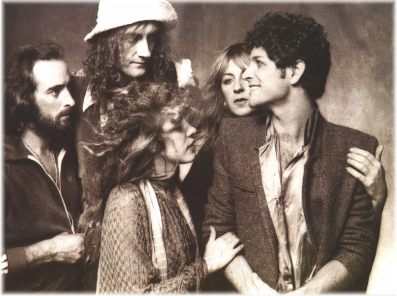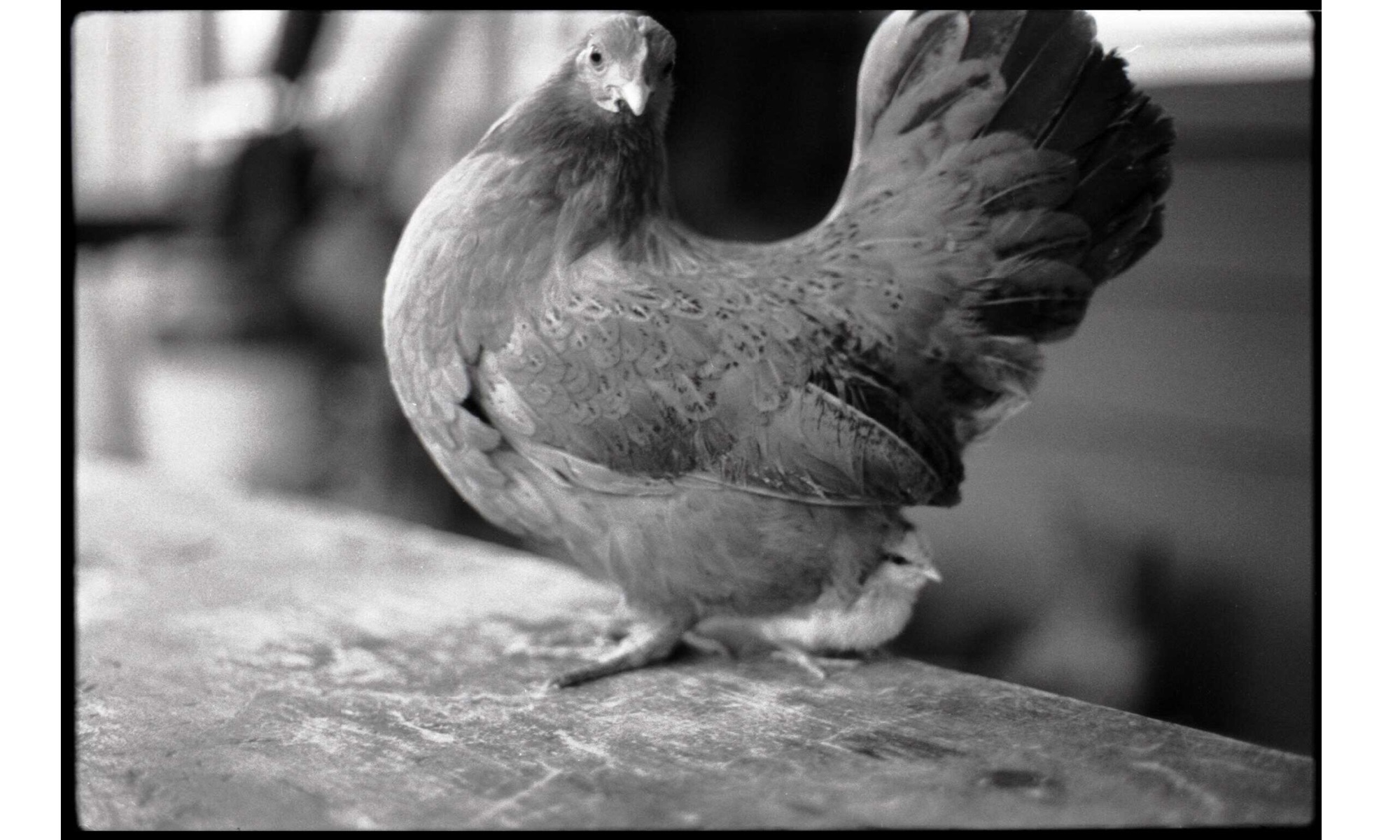 I periodically go on a Fleetwood Mac jag, where I can’t get enough of their albums. And not being a Stevie Nicks sycophant (although I do enjoy a lot of her work) but a Christine McVie fanatic, my Fleetwood Mac listening is not limited to their 1975 white album on, but goes back to the early 70’s, pre-Buckingham Nicks, when the likes of Bob Welch and Danny Kirwan were members. My latest obsession from the last couple of weeks has been Tusk, their 1979 follow-up to the phenomenally successful, life-changing Rumours.
I periodically go on a Fleetwood Mac jag, where I can’t get enough of their albums. And not being a Stevie Nicks sycophant (although I do enjoy a lot of her work) but a Christine McVie fanatic, my Fleetwood Mac listening is not limited to their 1975 white album on, but goes back to the early 70’s, pre-Buckingham Nicks, when the likes of Bob Welch and Danny Kirwan were members. My latest obsession from the last couple of weeks has been Tusk, their 1979 follow-up to the phenomenally successful, life-changing Rumours.
 Tusk was a curious album. There was no way the band was going to repeat the magic that emerged out of their personal break-ups and formed Rumours, number 10 on the list of best-selling albums of all time. (You can see that list at http://www.celebritynetworth.com/articles/entertainment-articles/whats-the-biggest-selling-album-of-all-time/). I’m sure the pressure from their label, Warner Bros. was pretty intense to do just that, but the band went in a completely different direction. While it seems that Lindsey Buckingham was the driving force between the pseudo-punk, vaguely country tone of Tusk, certainly throughout all of his, the majority, contributions, his quirky production served Christine and Stevie’s compositions well. Back in 1979, when Tusk was released, it was a rather shocking turn from Fleetwood Mac. When listened to today, it seems even more incomprehensible juxtaposed with Rumours, but it works all the better for it. The double album cost $1M to record, an exorbitant amount at the time, and with it only reaching #4 on the U.S. Billboard charts it is considered a disappointment. Still, it did sell over 2M copies, earning a double platinum certification.
Tusk was a curious album. There was no way the band was going to repeat the magic that emerged out of their personal break-ups and formed Rumours, number 10 on the list of best-selling albums of all time. (You can see that list at http://www.celebritynetworth.com/articles/entertainment-articles/whats-the-biggest-selling-album-of-all-time/). I’m sure the pressure from their label, Warner Bros. was pretty intense to do just that, but the band went in a completely different direction. While it seems that Lindsey Buckingham was the driving force between the pseudo-punk, vaguely country tone of Tusk, certainly throughout all of his, the majority, contributions, his quirky production served Christine and Stevie’s compositions well. Back in 1979, when Tusk was released, it was a rather shocking turn from Fleetwood Mac. When listened to today, it seems even more incomprehensible juxtaposed with Rumours, but it works all the better for it. The double album cost $1M to record, an exorbitant amount at the time, and with it only reaching #4 on the U.S. Billboard charts it is considered a disappointment. Still, it did sell over 2M copies, earning a double platinum certification.
The title track was released as a single in advance of the album, and should have been a good indication that this was not going to be a Fleetwood Mac album like anything we’d expected. From the jungle beat of the drums, the bizarre lyrics mumbled, then half-shrieked, and the overlay of the USC marching band, this was something visceral and different. I was transfixed. I ran around my high school (I was a senior) shouting Tusk! I even included it as one of my quotes in the yearbook.
Now as I listen to Tusk some 34 years later, I am struck by how forward thinking it was, and how I think it might be Fleetwood Mac’s best album. Okay, maybe not their best, but certainly Lindsey Buckingham does his best work ever with the band, or at least, most original. Stevie Nicks turns in some pretty interesting work as well, and while Christine McVie has always been, in my opinion, the most reliable of the Mac songwriters, she doesn’t disappoint on Tusk. While Tusk is arguably Lindsey’s album, it’s the way he pushes Christine and Stevie to the far reaches of what could be their comfort zones that really shines on Tusk. (Although, part of me hopes that they all had fun trying out stuff they’d never usually perform – just take another listen to ‘The Ledge.’)
My current obsession is Christine McVie’s ‘Think About Me.’ It was a third single off the album, and is considered a minor hit for the band, only reaching #20 on the Billboard singles chart. When I first heard ‘Think About Me’ it seemed a typical McVie single, reminiscent of ‘Don’t Stop’ and ‘Say You Love Me.’ Listening to it today, I am struck by the rock ‘n roll and punk influences, and the sparse, powerful mix of the song. Lyrically, McVie injects a little wry sarcasm into the song, something she is not usually known for. ‘Think About Me’ really features the power of McVie’s piano driving the song rhythmically forward, and Buckingham’s chunky guitar blends to create something truly rollicking. Once again, McVie choses to alternate vocals with Buckingham, the former taking the lead on the vocals, the latter leading the bands trademark sublime harmonies on the choruses. The vocal mix is perfect, with each of the unique voices easily picked out when they sing together. Add to that the solid foundation of Fleetwood’s drums and McVie’s surprisingly flashy bass and it thrills me every time I listen to it. McVie’s other contributions include the album opener, ‘Over & Over,’ the haunting ‘Brown Eyes,’ the gorgeously simple and heartfelt ‘Never Make Me Cry,’ the intricate confection ‘Honey Hi,’ and one of the best album closers ever, ‘Never Forget.’
Stevie Nicks’ most memorable song on Tusk for most people is ‘Sara,’ the second single from the album, and the highest charting, climbing to #7 on the Billboard charts. I’ve always found ‘Sara’ to be rather uninspired, overlong and little boring. The fourth single from Tusk was Stevie’s ‘Sisters of the Moon,’ a dark, pseudo-sequel to ‘Rhiannon.’ Nice enough, but pretty standard Stevie-fare. Her other three compositions for Tusk are some of her finest work. ‘Storms’ is a gently rumbling lament, beautifully constructed, and more complex than much of her Fleetwood Mac work. ‘Angel’ is probably my favorite song Nicks wrote for Fleetwood Mac. It’s got a bouncy, bluesy chord progression that makes it sound like a Christine McVie composition sung by Nicks. The hauntingly lovely ‘Beautiful Child’ closes out Nicks’ contributions to Tusk. Powered by McVie’s gentle piano and flush with the vocal interplay Fleetwood Mac is known for ‘Beautiful Child’ is a heartfelt ballad that highlights Stevie’s strength as a songwriter. While Nicks’ songs are possibly the least affected by Tusk’s strangeness, Buckingham keeps the arrangements sparse and raw lending an urgency even to her most gentle numbers.
But it’s true, Tusk is really Lindsey Buckingham’s album, and his creativity and originality really show through on his songs. Penning nine of Tusk’s twenty songs, Lindsey’s short, energetic numbers are like exclamatory punctuation marks sprinkled through the narrative. His songs burst with heavy, distorted guitars and raucous vocal shrieks that convey frustration, anxiety and anger. In some cases the bizarre lyrics seem interchangeable (and in fact, listening to the demo tracks included on the 25th anniversary release, snippets of lyrics are used on various songs). The first of Lindsey’s songs you experience is the punk/country hybrid called ‘The Ledge.’ You might think, ‘he’s lost his mind, what the heck is this?’ but it’s a powerful locomotive of a song with the three vocalists harmonizing with wails and whispers the likes of which Fleetwood Mac had never explored before. ‘Not That Funny’ is Buckingham’s punk response to Rumours’ ‘Never Going Back Again.’ It’s a bouncy pop ditty that leaps off the record with a high-pitched acoustic guidtar part that sticks in your head. Along with ‘That’s Enough for Me’ and ‘I Know I’m Not Wrong’ these are three musical outbursts that highlight Lindsey’s new musical direction and his frantic energy. ‘What Makes You Think You’re the One’ is almost traditional anchored by a pounding piano line that McVie once said made here wrists hurt after a day of recording. ‘Save Me a Place’ and ‘That’s All for Everyone’ are lush, dreamy tracks that retain the quirky sensibilities of Lindsey’s current vision, but are less confrontational and again, use the trio’s vocal interplay to maximum affect. Buckingham’s most beautiful number is yearning falsetto-powered ‘Walk a Thin Line.’ It highlights his adept vocals but it once again takes the expected Mac oohs and aahs and pushes them slightly left of center to remind us that we’re not listening to Rumours.
The first time I saw Fleetwood Mac live was during the Tusk tour at the Boston Garden. It was a glorious show, and was the first of three (or maybe four times) that I was able to see them live. I know they have had a bit of a return in the past few years, but without Christine McVie, it’s just not the same for me. There was some sort of magic when those five made music together, and Christine McVie is one of my all time musical heroes. I’m just glad the band has a long history of music to which I can return.
